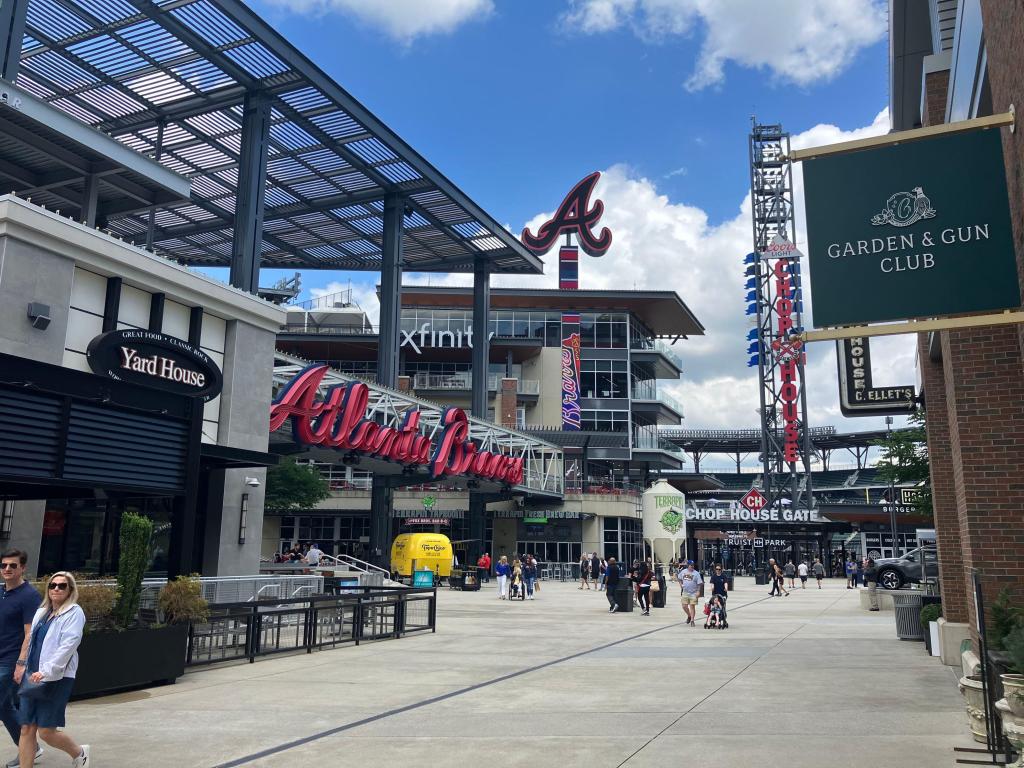
Orioles CEO John Angelos paused lease negotiations until new governor took office, planned 2-year extension, document says – The Denver Post
[ad_1]

As Orioles and Maryland Stadium Authority officials continue to reassure fans that the team is on track to sign a new stadium lease by the end of the year, a letter obtained by The Baltimore Sun reveals team CEO John Angelos temporarily halted negotiations last winter until Gov. Wes Moore took office.
Angelos also floated the idea of a two-year extension to allow time to craft an ambitious redevelopment plan for the entire stadium complex. That didn’t come to pass, leaving the parties staring down a Dec. 31 deadline for a lease or an extension that would renew the team’s commitment to the city.
“After the 2022 general election, I made the decision to pause our ongoing discussions with the Maryland Stadium Authority out of deference to your incoming Administration and my belief that you should have input into the finalized vision for Camden Yards,” Angelos told the governor in the Jan. 31 letter.
Moore, a Democrat, was elected on Nov. 8, 2022, and took office on Jan. 18 — a period of 10 weeks in which, according to the letter, negotiations weren’t occurring.
Officials in the administration of outgoing Republican Gov. Larry Hogan had hoped to complete a deal with the club before his term ended and the Hogan-appointed stadium authority chairman, Thomas Kelso, was replaced. Hogan’s team, in fact, got a lease deal done with the Baltimore Ravens at the end of last year.
Angelos has insisted — including in the letter — that the baseball club will remain in Baltimore. And he has said the Orioles will help “re-imagine” downtown development. But fans have expressed uneasiness that a lease has still not been signed, and some public officials have recently urged the parties to reach a deal.
There was no immediate response Wednesday night to requests for comment to Angelos and Moore’s spokesman.
Angelos’ two-page letter, written 13 days after Moore’s inauguration, underscores the close working relationship he has with Moore, a frequent visitor to Camden Yards.
Moore featured Angelos in his 2020 book “Five Days: The Fiery Reckoning of an American City,” while Angelos donated the maximum amount of $6,000 to Moore’s campaign last summer. At the Orioles’ home opener this year, Moore threw the ceremonial first pitch, and he returned to the ballpark during the recent Yankees’ series to man the hose that sprays fans in the “Splash Zone.”
“Based on our conversations to date, you and I agree that the State, City and the Orioles need to dedicate the necessary time, effort and resources to review and structure a comprehensive development plan in order to maximize the impact of this level of investment in Oriole Park,” Angelos told Moore in his letter.
Angelos, who is also the team’s chairman, suggested to the governor that the team and the state sign a two-year lease extension to give the parties time “to facilitate and complete this sweeping project.”
It’s unclear why that didn’t happen. Instead, the Orioles lease with the state is due to expire at the end of this year.
The club declined Feb. 1, 2022, an option to exercise a one-time, five-year extension, saying it intended instead to seek a longer-term, more comprehensive stadium agreement.
In February 2021, the parties had agreed to a two-year extension when the old lease was about to expire and no new deal was imminent. In January 2023, Angelos told Moore he was prepared to repeat that course.
“We’re willing to do so again in order to facilitate and complete this sweeping project — a simple, two-year extension is the best protection for Maryland taxpayers’ investment in the highest and best development and stewardship of the Camden Yards property,” the letter said. “I will have our counsel reach out to MSA’s counsel to implement an extension agreement.”
Craig Thompson, the Moore-appointed stadium authority board chairman, did not immediately respond Wednesday night to texts seeking comment.
Thompson worked for the law office of Peter Angelos — the longtime owner of the Orioles — from 1998 to 2005. He said at the time of his appointment he did not have a personal relationship with Angelos nor with any member of his family.
John Angelos has often said publicly that the lease will be part of a broader “memorandum of understanding” underscoring the team’s commitment to helping redevelop Baltimore as part of a private-public partnership.
He disclosed in the letter that the club had “recently” engaged JLL, a firm that was the master developer adviser to the Atlanta Braves on its Battery development, “to assist in maximizing our creative vision for Oriole Park.” The Battery is a complex of hotels, restaurants, shops and other attractions adjacent to the Braves’ Truist Park.
Angelos has touted The Battery as a model for what could be built around Camden Yards to help turn the area into more of a year-round attraction. In March, he and Moore toured the park and The Battery, both of which opened in 2017 when the Braves left Atlanta for suburban Cobb County.
JLL, currently 190 on the Fortune 500 list, is a commercial real estate and investment management firm that boasts annual revenues of $20.9 billion.
On its website, it spotlights its work with the Braves, whose lease on Turner Field in Atlanta was expiring in 2016 and wanted to build a new “world-class ballpark surrounded by a true live-work-play village.” JLL said it “quickly identified 82 acres of unused land in the heart of their fan base and anonymously negotiated its purchase at below market value. In only 28 months, we helped define, design and construct a first-of-its-kind development.”
As Angelos wants for the Camden Yards area, The Battery was built as a public-private partnership. It is owned and operated by the team’s Braves Development Co., and the team received a $300 million subsidy from Cobb County for construction of the ballpark.
According to the county’s finance director, last year was the first time The Battery proved to be a net positive, generating more in property tax revenue than what had to be paid out for the annual debt service — $2.5 million versus $2.1 million. Observers credit record attendance fueled by the Braves’ World Series victory in 2021, along with a rise in property values in The Battery.
The area continues to be built out, with the help of public largesse: This spring, for example, Cobb County’s development authority approved $10 million in tax breaks for The Henry, a luxury housing, hotel and retail project named after Braves’ legend Henry L. “Hank” Aaron. It will be built across from the baseball park and will be connected to it and The Battery by a pedestrian bridge.
Last year, the state approved $1.2 billion for the Orioles and the Ravens to upgrade their facilities. The Ravens, having signed their long-term lease, already have access to their half-share of that.
The letter shows Angelos envisioning much broader redevelopment goals, saying that while the Os are “fortunate” the state arranged for $600 million to upgrade Oriole Park, “there is a lot more work to do, particularly because our new arrangement will involve much more than just a new agreement for the Orioles’ use of the ballpark.” He said the Orioles’ project team members included Goldman Sachs and Greenberg Traurig.
As Angelos has pushed for his plans, he’s also reached out to Maryland’s congressional delegation and retained Washington lobbyists.
A recent survey sought input about the development of the Camden Yards area, one person who was polled said. Among the questions asked Monday were about how familiar they were with the state law providing the teams with $1.2 billion and opinions of Moore, Orioles owner Peter Angelos, the General Assembly, Mayor Brandon Scott and the two teams.
The survey described broader goals for what it called the “Camden Crossing” project, such as improving economic development, providing jobs, increasing safety and enhancing public transportation, and asked if the respondent supported them.
The person who described the survey to The Sun asked to remain anonymous out of concern that speaking on the record could violate their employment contract. The survey did not say who was collecting the information nor who was paying for it.
Baltimore Sun reporter Hannah Gaskill contributed to this article.
()
[ad_2]
Source link




